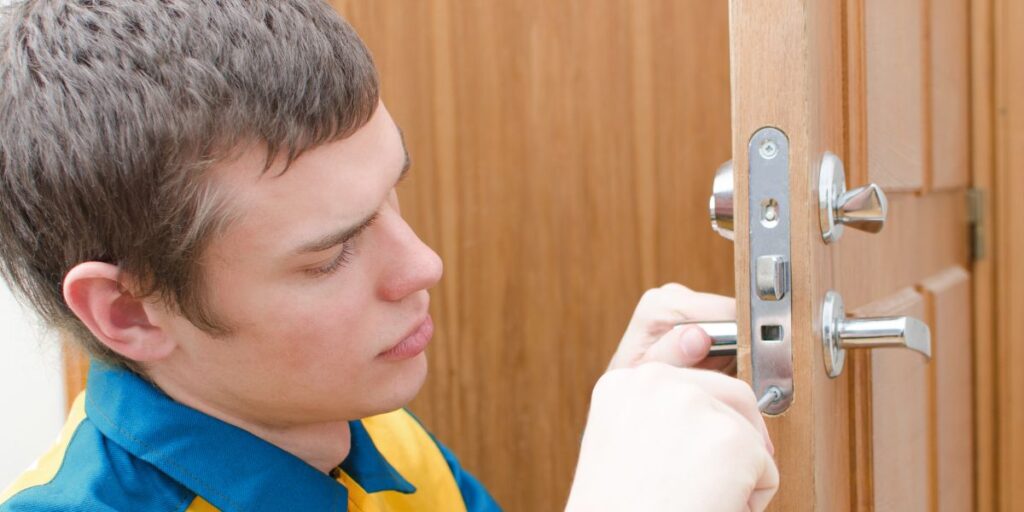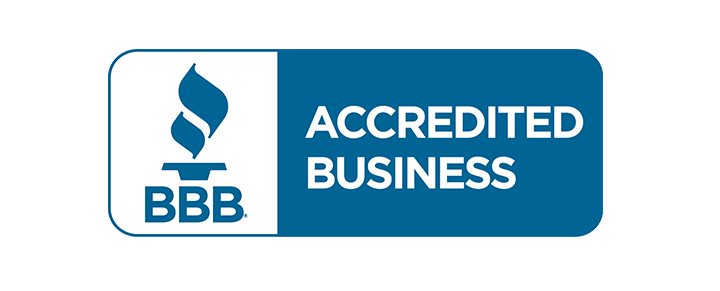When it comes to home security, proper lock maintenance is often overbooked. However, maintaining your locks can mean the difference between a secure home and a vulnerable one.
Imagine you come home from a long day of work, eager to relax and unwind. You reach for your keys and try to unlock the front door, but the key won’t turn. Frustrated, you jiggle and wiggle the key, but it’s no use. You’re locked out of your own home.
This scenario is all to common for those who neglect proper lock maintenance. A simple lubrication or replacement of worn out parts could have prevented this lockout from happening. Proper lock maintenance is essential to ensure the security of your home, and it’s important to make it a regular part of your home maintenance routine.
This article will discuss the importance of caring for your locks and provide tips on how to properly care them.
What is the importance of proper maintenance?
Proper lock maintenance is crucial for ensuring the security and safety of your home. Lock that are not properly maintained could become worn, making them easier to pick or break into. Also a lock that is not functioning properly can cause frustration and inconvenience when trying to enter your home. Regular maintenance can also extend the life of your locks, saving you money in the long run.
Door lock maintenance in general
One of the most important aspects of lock maintenance is regular cleaning. Dust, dirt, and grime can accumulate in the lock mechanism, causing it to become stiff and difficult to turn. To clean your lock, simply use a clean, dry cloth to wipe down the exterior of the lock and the keyhole. You can also use small brush, such as a toothbrush, to clean out the keyway.
Another important aspect of locks maintenance is to ensure that the lock is properly lubricated. Locks that are not lubricated can become stiff and difficult to turn, which can cause damage to the lock mechanism in time. Lubricating your lock is a simple process and can be done with a small amount of lubricant applied to the keyway and the lock mechanism.
Upgrade old or broken locks
If your old lock or broken, it is important to have it replaced as soon as possible. Old locks can become worn and easy to pick or break into, while broke locks can cause frustration and inconvenience when trying to enter your home. Upgrade your locks to new, more secure models can provide high level of security for your home.
Lock maintenance is not only important for keeping your home secure, but it also helps to extend the life of your locks. However, it can be difficult to know where to start when it comes to maintaining your locks. To help, we’ve compiled a list of five pro tips for proper lock maintenance.
-
- Keep your locks clean.
Just like anything else in your home, locks can get dirty over time. Dirt and grime can accumulate in the keyway, making it difficult for the key to turn smoothly. To keep your locks clean, use a damp cloth and mild soap to wipe them down on a regular basis. This can help to keep the keyway clear and make it easier for the key to turn.
2. Lubricate your locks regularly.
Lubrication is essential for maintaining the smooth operation of your locks. Without proper lubrication, the internal components of the lock can become worn and damaged, making it more likely that you’ll experience a lockout. To lubricate your locks, use a lubricant specifically designed for locks, such as graphite powder or silicone spray. Apply the lubricant to the keyway, insert and remove the key several times to work the lubricant into the lock.
3. Keep a spare key.
It’s always a good idea to keep a spare key somewhere safe and accessible. This can come in handy if you ever find yourself locked out of your home. Some options for keeping a spare key include leaving one with a trusted neighbor, keeping one in a safe, or keeping one in your wallet or purse.
4. Check your locks for wear and damage.
Regularly inspecting your locks is an important step in maintaining them. Look for any signs of wear or damage, such as loose screws or rust. If you notice any issues with your locks, it’s important to address them as soon as possible. This could include lubricating the lock, tightening loose screws, or replacing worn out parts.
5. Consider upgrading old or broken locks.
If your locks are old or broken, it’s important to replace them as soon as possible. Old or broken locks are less secure and more likely to cause lockouts. Consider upgrading to newer, more secure locks to ensure the maximum level of security for your home.
If you follow these pro tips, you can ensure that your locks are functioning properly and providing the maximum level of security for your home. Remember to keep your locks clean, lubricated, and in good working order, and you’ll be well on your way to a secure and lockout-free home.
Proper lock maintenance is crucial for ensuring the security and safety of your home. Locks that are not properly maintained can become worn, making them easier to pick or break into. Additionally, a lock that is not functioning properly can cause frustration and inconvenience when trying to enter your home. Regular maintenance can also extend the life of your locks, saving you money in the long run. If you find yourself in need of emergency locksmith services, Locksmith Empire is available 24/7 to provide residential emergency locksmith services in Salem, Oregon.
Many homeowners have questions about the importance of locks and how to properly maintain them. To help answer some of these questions, we’ve compiled a list of frequently asked questions about lock maintenance.
FAQ
Q: What is the importance of the lock?
A: Locks are an essential part of home security. They provide a physical barrier that keeps intruders out of your home. In addition to providing security, locks also provide privacy and help to keep your valuables safe. Without locks, it would be much easier for burglars to break into your home and steal your belongings.
Q: What is the importance of protective locks in security management?
A: Protective locks are important for security management because they provide an additional layer of security for your home. They are designed to be more difficult to pick or break than standard locks, making it more difficult for intruders to gain access to your home. Additionally, protective locks often come with additional features, such as deadbolts or bump-proof technology, that provide even more security.
Q: How do you ensure that locks are in good condition?
A: To ensure that locks are in good condition, it’s important to regularly inspect them for signs of wear or damage. This could include looking for loose screws, rust, or other damage to the lock. Additionally, it’s important to keep your locks clean and lubricated to ensure that they are functioning properly. If you notice any issue with your locks, it’s important to address them as soon as possible.
Q: What maintenance work has to be done today to keep the locks in good work conditions?
A: To keep locks in good working condition, it’s important to do regular maintenance. This could include cleaning your locks with a damp cloth and mild soap, lubricating the lock with a lubricant specifically designed for locks, tight loose screws, and replacing worn out parts. Additionally, it’s important to regularly inspect your locks for signs of wear or damage and to replace old or broken locks as soon as possible.
Always keep in mind that by regularly inspecting, cleaning, and lubricating your locks, you can ensure that they are functioning properly and providing the maximum level of security for your home. Its important to consider upgrading old or broken locks and to consult with a professionals like Locksmith Empire if you have any questions or concerns about your locks. Remember, a little bit of maintenance goes a long way in keeping your home safe and secure.


